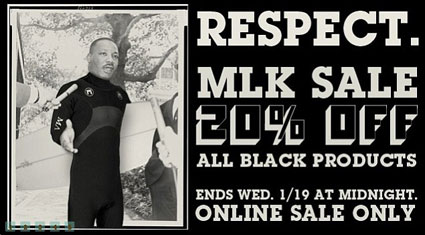Category Archives: Politics
Are You Registered??
I was having dinner not too long ago with a co-worker.
After a few glasses of wine, he said that, despite the fact that he had been eligible to vote for twenty four years, he has never registered or participated in the process.
Without my saying anything, it was clear that this revelation was, for my co-worker, a point of frustration and consternation.
This is a man who is viewed as a leader…a leader in his profession, in his community and to his family.
As we talked further, it became clear that he was ashamed.
My best counsel was to tell him that what happened in the past is history.
He could change the course of the future with one simple action.
Register to vote.
Attorney General Eric Holder recently addressed a group of African-American clergy.
His message was concise and simple, ’60s voting-rights gains are at risk.
The attached article includes the primary points that he made, but the point that hit me the hardest was that an estimated 25% of African-Americans do not possess the proper documentation to meet ID requirements in some states.
That statistic is alarming. But the right to vote is more than a racial issue.
The vulnerable and ‘at risk’ include the elderly and those who live in urban environments and don’t have a driver’s license.
An article from the May, 2012 AARP Bulletin illustrates the gravity of the situation:
We are holding an election in spite of ourselves.
The League of Women Voters has shut down its voter registration efforts in Florida, and Souls to the Polls, a fleet of buses that has transported Floridians from churches to polling places since 2004, is grounded.
That is because 12 years after its hanging-chad fiasco, Florida has decided to tighten voter access and threaten, with stiff fines and possible jail, groups that help register voters.
This is how we preserve and promote the world’s greatest democracy??
If, like my co-worker, you are not registered to vote, do something about it.
Today.
Exercise Your Right to Vote.
If you aren’t clear how to, click this link.
It is that simple and that important.
The Thing About Aunt Jemima
I’ve got this thing for Aunt Jemima.
Long before Oprah, Aunt Jemima was the first Black female icon to gain welcome entrance into homes across America, both Black and White.
This dates back to the late 1800’s.
I acknowledge and disavow the negative racial stereotypes associated with the early incarnations of Aunt Jemima.
Admittedly, my fascination has more to do with the power of the brand – Aunt Jemima empowered and inspired consumers, making them believe that they could capture “her special magic” simply by adding wet ingredients to a dry mix.
There are three Aunt Jemima print ads, circa 1943, on my kitchen wall.
They remind me, daily, that as advertisers, we have a responsibility to help craft responsible messages that are authentic, relevant, engaging and absent of offensive and derogatory stereotypes.
For additional reading on the subject, check out —
Slave in a Box: The Strange Career of Aunt Jemima by M.M. Manning
The Grace of Silence, A Memoir by Michele Norris, whose grandmother portrayed Aunt Jemima, selling pancake mix to midwest housewives
Black Characters in Search of Reality, A New York Times Opinion by Brent Staples
Mad Men, Advertising and the absence of African-Americans…at the top
I am very selective with regard to the television that I watch on a regular basis.
The AMC Series Mad Men falls into the category of what I do watch.
It is intelligent television – well written and well acted.
The season four finale aired last Sunday, prompting an onslaught of media coverage including a candid New York Times interview with the show’s creator, Matthew Weiner.
One of the questions focused on the show’s lack of any major African-American (or other minority) characters.
Weiner explained, given the 1965 timeline and within the storyline:
“…this is going to change. By the way, it changes socially. It does not change in advertising. It still has not changed. And I will go to the mat on this thing.”
As a 25 year veteran of the ad industry, I agree with Weiner.
Strides have been made as evidenced by the presence of African-Americans in all facets of the business today.
However, I would not go as far as to suggest that racism does not exist in advertising.
It does.
While the journey is far from over, the fictional arc of where the industry was as portrayed in the show represents the steps taken forward.
To the original points I made, Mad Men is good and entertaining television.
Like the African-American ad executives that Weiner referenced in the interview, I believe that there should not be more African-American characters in the show.
Simply put, it just wouldn’t ring true.
I stand on the shoulders of pioneers like Tom Burrell, Caroline Jones, Frank Mango, Vince Cullers and Madam CJ Walker.
Their efforts may not make it to the Mad Men storyline, but their importance and trailblazing efforts changed the trajectory of the advertising industry.
click here _ for the full New York Times article.
Boy
I was not surprised by the content of this article.
Shocked.
Disgusted.
Outraged.
These adjectives more accurately describe what I felt.
Unlike Messers. Ash, Haithon and the Honorable UW Clemon, the former Federal judge, I did not grow up in the South.
This, in no way, minimizes the sting and blatant disrespect associated with the word boy…especially in the context that is outlined.
Which makes the recent reversal (and reprimand of the plaintiff’s attorney) by the Eleventh Circuit Court all the more appalling.
Denying one’s right to be treated with respect and dignity only serves as another tool of racism.
While in this instance the conversation focuses on race, the underlying issue is broader and suggests that while countless strides have been made in the fight for equality, we have a great deal of work yet to complete.
Photo by Gordon Parks, Black Muslim Rally, New York, circa 1963



